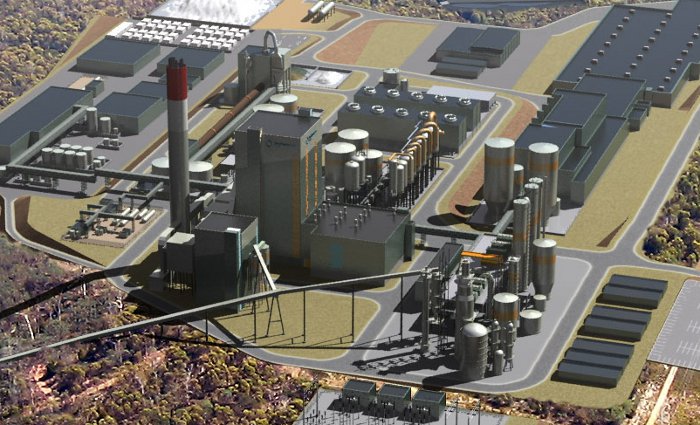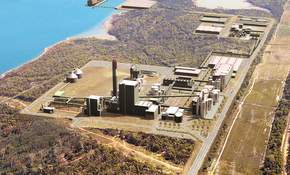
The timber giant’s half-yearly results showed a 40% drop in revenue to $217 million and a 14% fall in debt to $587 million. The results also showed an increase in losses from $4.6 million to $173 million, although most of that was due to one-off costs of $166 million.
Gunns said its future lay in “repositioning the business to become a world’s best-in-class producer of pulp”, which is why it is keen for the mill to start as scheduled in 2015.
Bell Bay is expected to generate $500-550 million of revenue per year, including $100m in renewable energy income, and pay for itself within three years, according to the company.
However, while it believes the Tasmanian bleached kraft pulp mill will drive its future profitability, it may not have the money to proceed with the $2.3 billion project.
Gunns is searching for a joint venture partner for Bell Bay as it tries to raise up to $282 million in capital. Singapore-based Richard Chandler Corporation is poised to tip in $150 million subject to a shareholder vote on 19 April and regulatory approval.
The recapitalisation is designed to allow Gunns to pay off its debt by the end of this calendar year and provide it with enough room to fund the mill.
A spokesman told ProPrint that while Bell Bay was “critical” to Gunns’ future, he wouldn’t reveal how confident the company was that it would go ahead. He also wouldn’t be drawn on whether the mill could proceed without a joint venture partner.
He said it would employ about 300 people once it reached full productivity and would also generate about 3,000 construction jobs.
Bell Bay’s wood will be “predominantly” sourced from company estates, giving it an edge over Asian rivals that don’t control their own timber, according to Gunns.
That will allow it to manage the effects of a high Australian dollar and remain competitive, the company added.
Meanwhile, The Wilderness Society has called on Richard Chandler “to guide Gunns away from the current pulp mill proposal towards an alternative, socially acceptable plantation-based future” if it reaches a deal with the company.
“The mill still lacks a social licence due to a range of issues associated with its dodgy assessment and outstanding environmental, social and economic concerns that have not been properly addressed,” the environmental campaigner said.
Comment below to have your say on this story.
If you have a news story or tip-off, get in touch at editorial@sprinter.com.au.
Sign up to the Sprinter newsletter

